[ad_1]
Update: We tell you everything you need to know about localhost in a more orderly and intuitive way to read, but we also expand tools that can be used to create our own web server such as WAMP SERVER and AMPPS.
Surely on more than one occasion you have heard of localhost, but you do not know what it means, or you do not know its applications.
The service localhost has very interesting utilities, especially if you are going to create a web page, you want to learn to programor you are in charge of a local network.
That is why it is convenient to know what it is, what it is for and how we can take advantage of it. Let’s stop preambles and let’s get to it.
What is Localhost or IP 127.0.0.1 for:
What is localhost?
localhost It is the name that is used to designate the computer or device that you are using at a certain moment. It is what the literal translation defines as “local guest“, but it is more correct to define it as local device or server.
All localhost has assigned the IP address 127.0.0.1 (either::1 in IPv6), also called loopback IP address. It is called like this because it allows you to use certain TCP/IP tools (related to web pages) pointing to itself, that is, in local mode, without the need to connect to the Internet and without leaving your computer.
Why use the range starting with 127? There are several explanations, but one of the most logical is that in binary the numbers 0 (00000000) and 255 (11111111) already have functions assigned to them, so another easy value to remember is 01111111, which in the decimal system is 127.
What use is it?
If you set up your computer as a Web serverwhen accessing localhost (or to the address 127.0.0.1which as we have said refer to the same thing) you will be able to enter the web page that you have stored locally, as if it were posted on the Internet, but without the need to be connected and without anyone else being able to access this page.
This is very useful, for example, if you are creating a web page and you need to make changes and see how they look before uploading it to the Web.
localhost It acts like a standard web page, but access is only available on the local computer, and does not require Internet.
It is also sometimes called hostname because it is a simple label to nominate the IP address 127.0.0.1which is the one that any computing device recognizes as a local device, in the same way that 192.168.1.1 is used to access the local router.
Localhost, the server detector
One of the most basic utilities of localhost, It is that it helps us to know if we have a web server installed on our computer, that is, if we can use it for other people to access web content that is on our computer, through the Internet.
Open any browser and in the field where you write the web address, type: localhost. You can also use its equivalent 127.0.0.1
If an error message appears in your browser, it means that you do not have it configured as a web server:
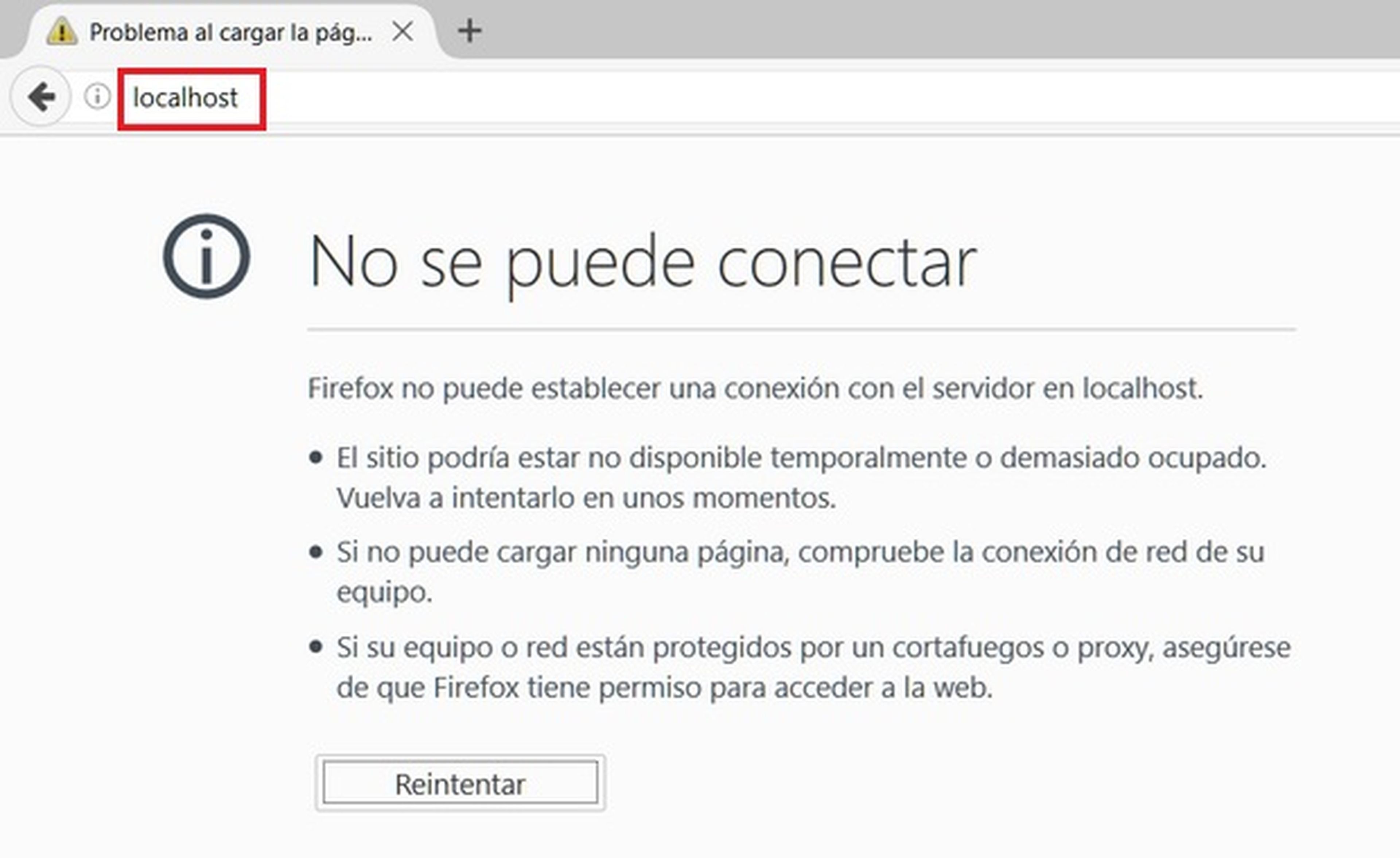
Install your own web server with XAMPP
To understand one of the main functions of localhost, let’s install a web server in the computer.
There are many programs that fulfill this function. One of the most straightforward is XAMPP, an Apache distribution that offers everything you need to set up a web server: the server manager (Apache), the database (MySQL), the PHP language, and the PERL language.
- Access the Apache website and download XAMPP for Windows.
- Install the app and launch the Control Panel (Control panel).
- In a column, on the left, you will see several modules. In the Apache module line, press the button start.
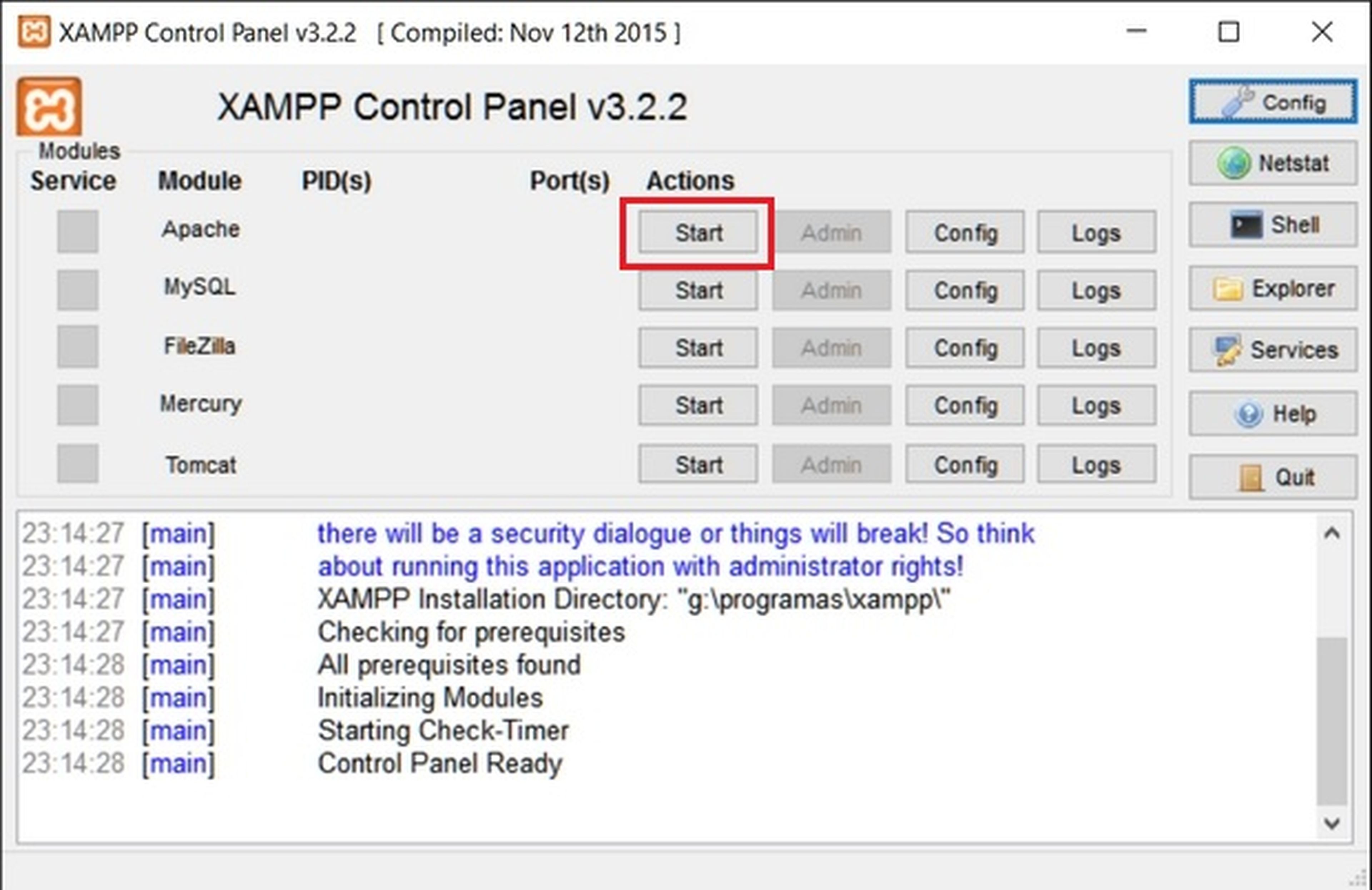
- will be launched the apache web server in the computer.
- Now open any browser and in the field where you write the URL address put: localhost either 127.0.0.1. The default XAMPP page (dashboard) of the web server will appear.
- If you now create a web page you just have to place it in a folder inside XAMPP and you will be able to see it through localhost to check how it looks, edit and improve it, before uploading it to the Internet.
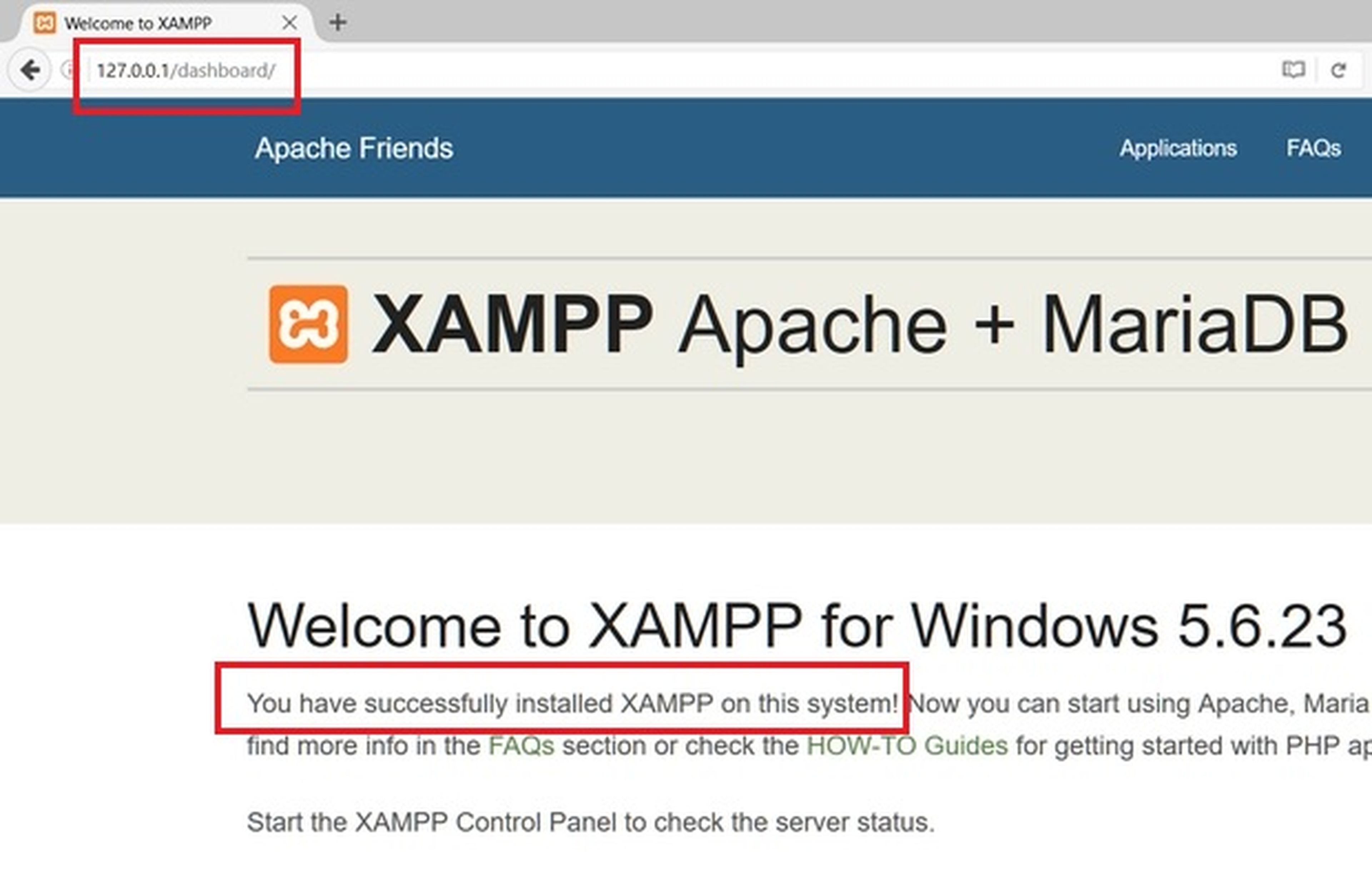
Alternatives to XAMPP
Although the most used is XAMPP, there are also other applications that can serve us in the same way.
The truth is that all of them lead to the same destination, but they do it in a different way, offering capabilities that, perhaps, are more interesting depending on the type of user.
WAMP SERVER
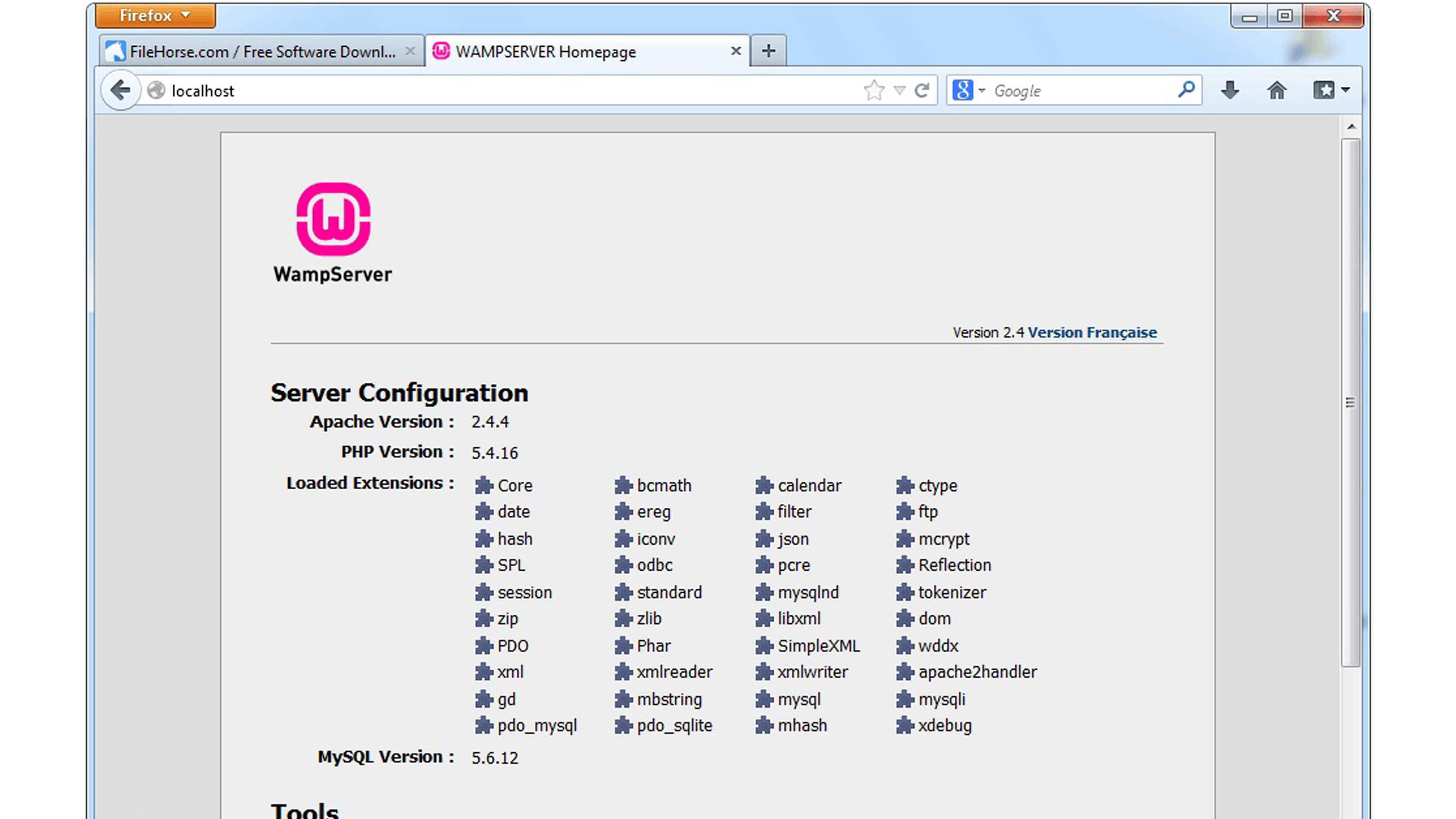
WAMP SERVER is a program is Windows exclusive. Includes a package with the main tools Apache + MySQL + PHPin addition to PHPMyAdmin.
It is available in several languages and one of its great virtues is the interface, which despite being quite simple, is attractive and above all easy to handle.
AMPPS
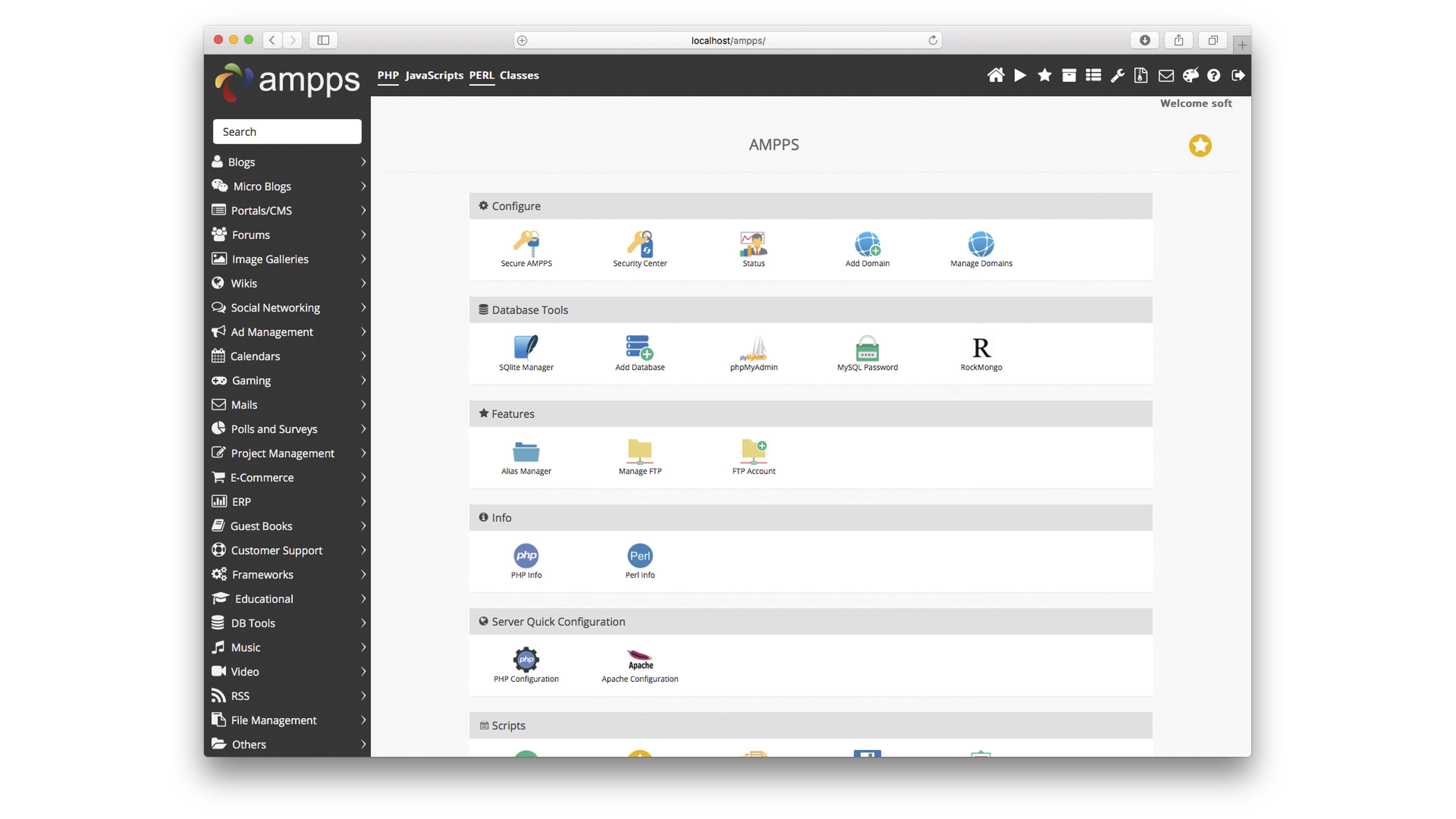
AMPPS is very complete, since we can use Apache, MySQL, MongoDB, PHP, Perl, or Pythonin addition to being able to be installed in Windows or macOS.
One of its great virtues is the number of applications with which it counts, since we are talking about more than 400.
The other of its virtues is its Easy to use, since it has a very well-kept interface, halfway between simplicity and design. The downside is that it is somewhat slow software.
other utilities
you will use frequently localhost when you are learning programming, as many languages use web functions, and the tests are done locally.
It is also used to block the use of web addresses, changing operating system settings so that when a user wants to access a certain website, they are automatically redirected to the localhost to show you a specific message.
It also works with other protocols. If you configure your computer as an FTP server (online file store), when accessing the localhost you will be accessing index of that FTP, where is the list of files it contains.
As we have seen, the service localhost or 127.0.0.1 it is vital when working with Internet services. It is important to understand what it is for, in case we ever need to use it.
[ad_2]





Leave a Reply